A graduation picture of Winnie Madikizela-Mandela hangs on the wall inside the home of Ivy Madikizela
‘Sisana was going to build a house. She was going to make sure they tarred the road to the village, just as she had ensured the electricity reached Mbongweni. And that I could travel all the way to Jo’burg for medical help. Or she would send airtime. But we’re not sure it’s going to happen anymore. Sisi’s gone.”
Ivy Madikizela, the wife of Winnie Madikizela-Mandela’s younger brother, said she was watching the news when she found out that her sister-in-law had died.
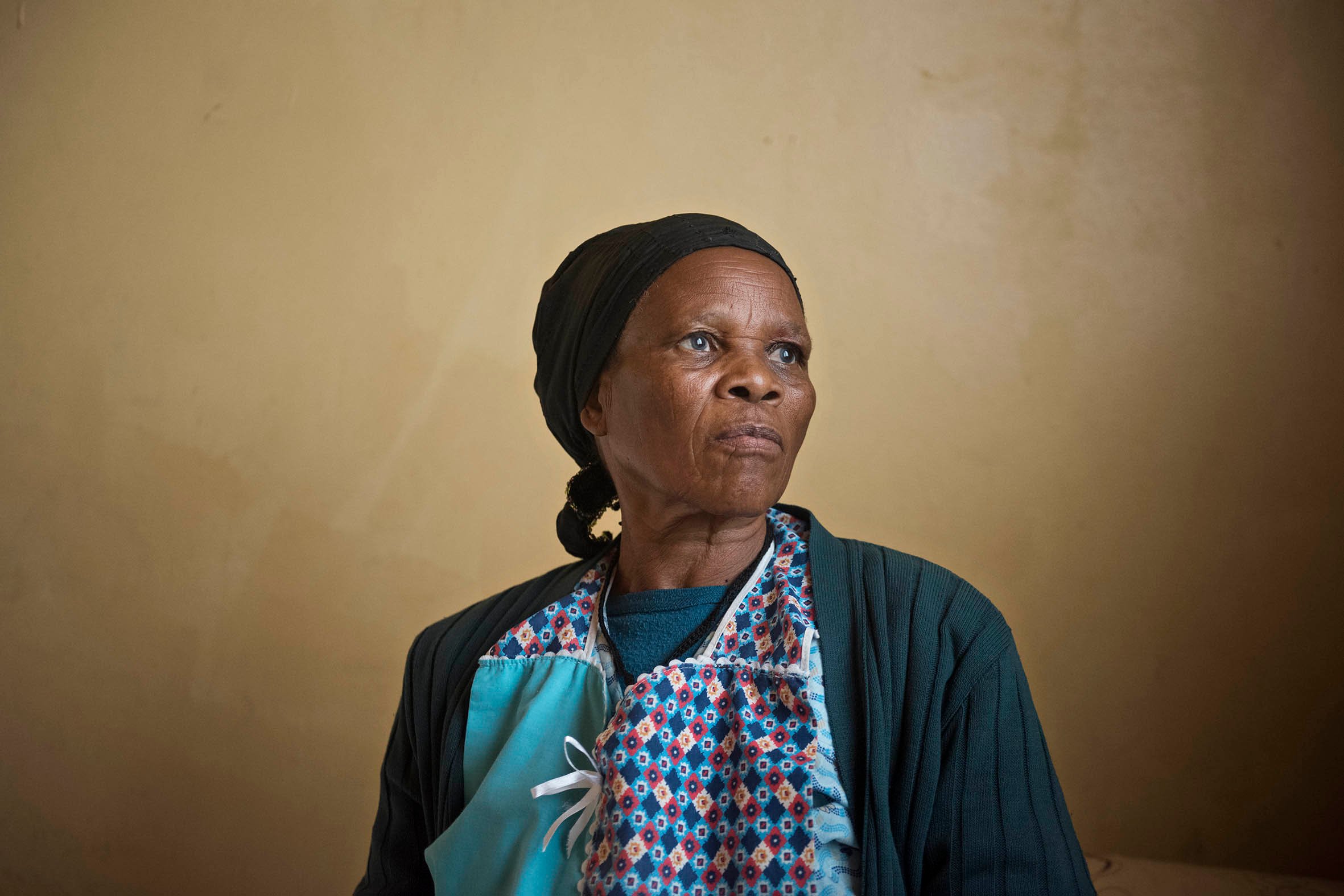
[Ivy Madikizela. (Madelene Cronje)]
“Ooh mtan’m, ooh mtan’m! I was really hurt when I saw that. You don’t give up on a person ntombazana, yes, we saw that Sisana was sick but we were not expecting her to leave us,” she said.
To South Africa Winnie Nomzamo Madikizela-Mandela was “the mother of the nation” and a fearless freedom fighter. But to her family in her birthplace, Mbongweni near Bizana in the Eastern Cape, she was simply Sisana, or Sisi.
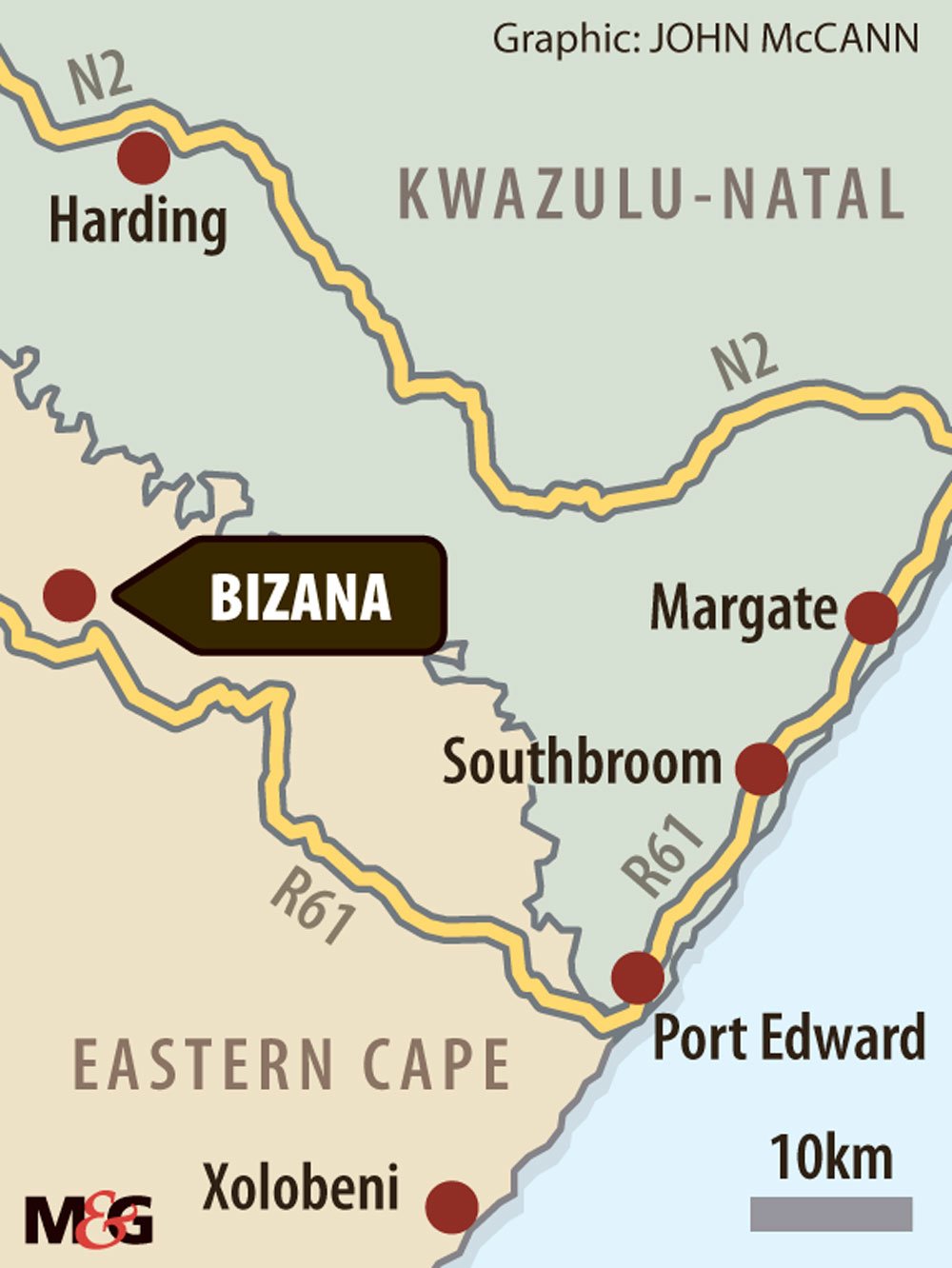
She was their beloved sister, who enjoyed eating isgwamba (umfino, an indigenous leafy plant, mixed with maize meal) when visiting home and who would ask for a pig to be slaughtered so she could return to Johannesburg with the meat.
Ivy Madikizela last saw Madikizela-Mandela in February last year, when she and other family members travelled to her home in Orlando West, Soweto, to visit her. “We found her sick, her feet were swollen, she could not even wear shoes. But we were happy to see her. As the family we bought two sheep that we slaughtered and we had fun.”
For Ivy Madikizela, whose husband Thanduxolo died in 2004, she lost not only a sister-in-law but her support system, a person she could turn to when she needed help.
She remembered how, in December, Madikizela-Mandela assisted her financially when she performed a ritual at home. This was not the first time Madikizela-Mandela had come through for her in times of need.
“I remember a time when I was really sick. I called her at night and she told me that in the morning I must travel to Bizana and when I got to town I met someone she had sent to take me to Durban so that I could fly to Johannesburg. Sisana took me to doctors — this was around 2004. It was in Johannesburg that it was discovered what my problem was and
I got a hip replacement.
“Ndilahlekelwe mna. I’m talking about a person who would call me and I would tell her, ‘Sisana, I don’t have airtime to call you’, and before I know it she would have deposited money into my account. She knew my account number and she used to deposit money for me.”
The last time Madikizela-Mandela visited home was in 2015. Ivy Madikizela said that even after the death of Nelson Mandela she went home for a ritual to be performed for her as a person who had lost her husband.
“She used to stay in that flat when she was home. And I would say to her: ‘Sisana, why do you insist on sleeping in this ugly flat? What are people going to say when they see you coming out of this flat?’ And she would say: ‘I will build a house, I will build a house’, but even today she is still building that house,” chuckled Ivy Madikizela.
“It was always great to have her around. She would come with her bodyguards and they would fill this house.”
When she was in Mbongweni, Madikizela-Mandela stayed at her younger brother’s house, which is next door to the home where she grew up. The graves of her parents and siblings are in the garden.
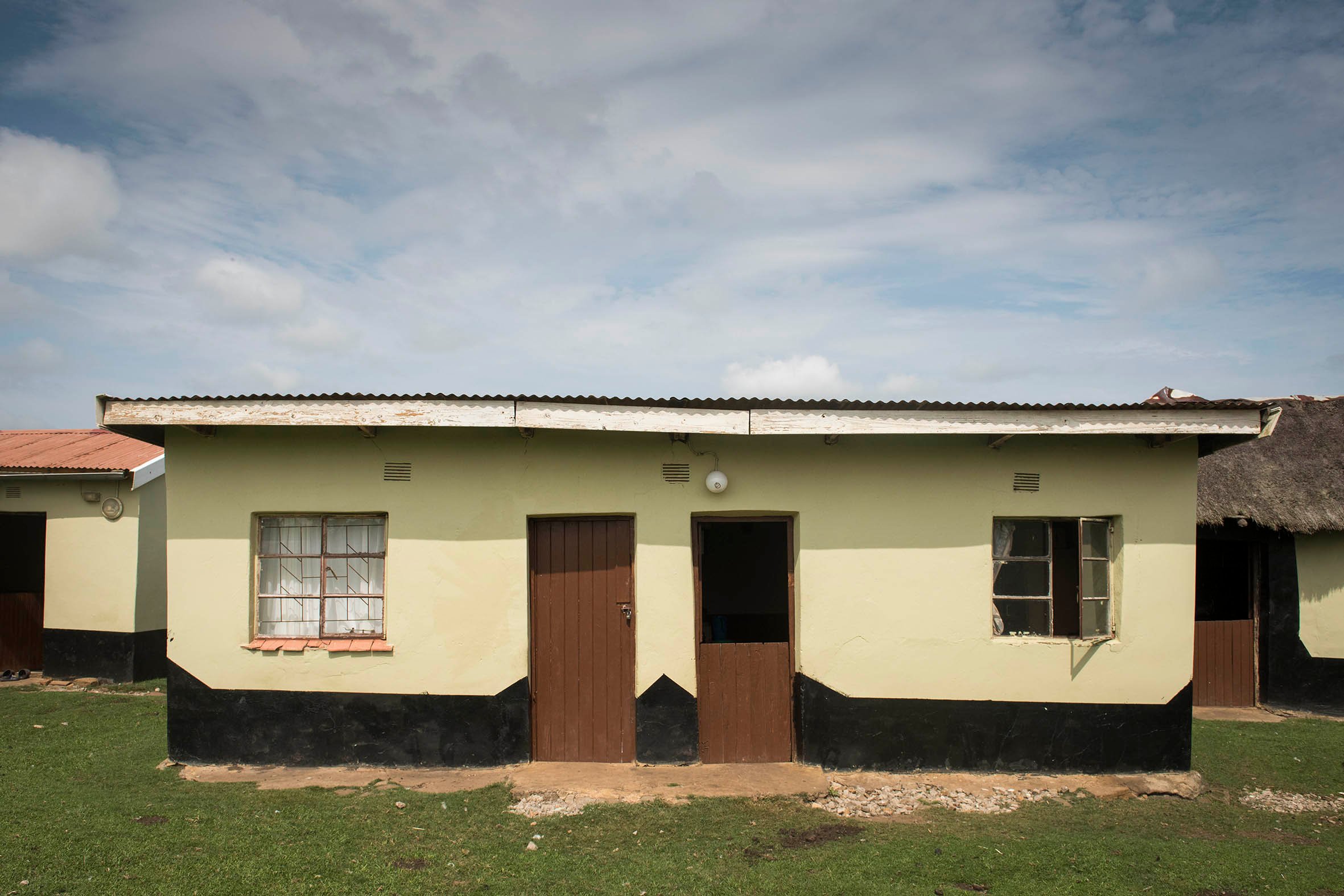
[Winnie Madikizela-Mandela stayed with her sister-in-law Ivy Madikizela but said one day she’d build a house of her own. (Madelene Cronje)]
The three-bedroom home is now used for storage and has become a shelter for goats and sheep, whose droppings fill the house.
The Mail & Guardian also spoke to Nongazi Madikizela, Madikizela-Mandela’s cousin. Their fathers were siblings.
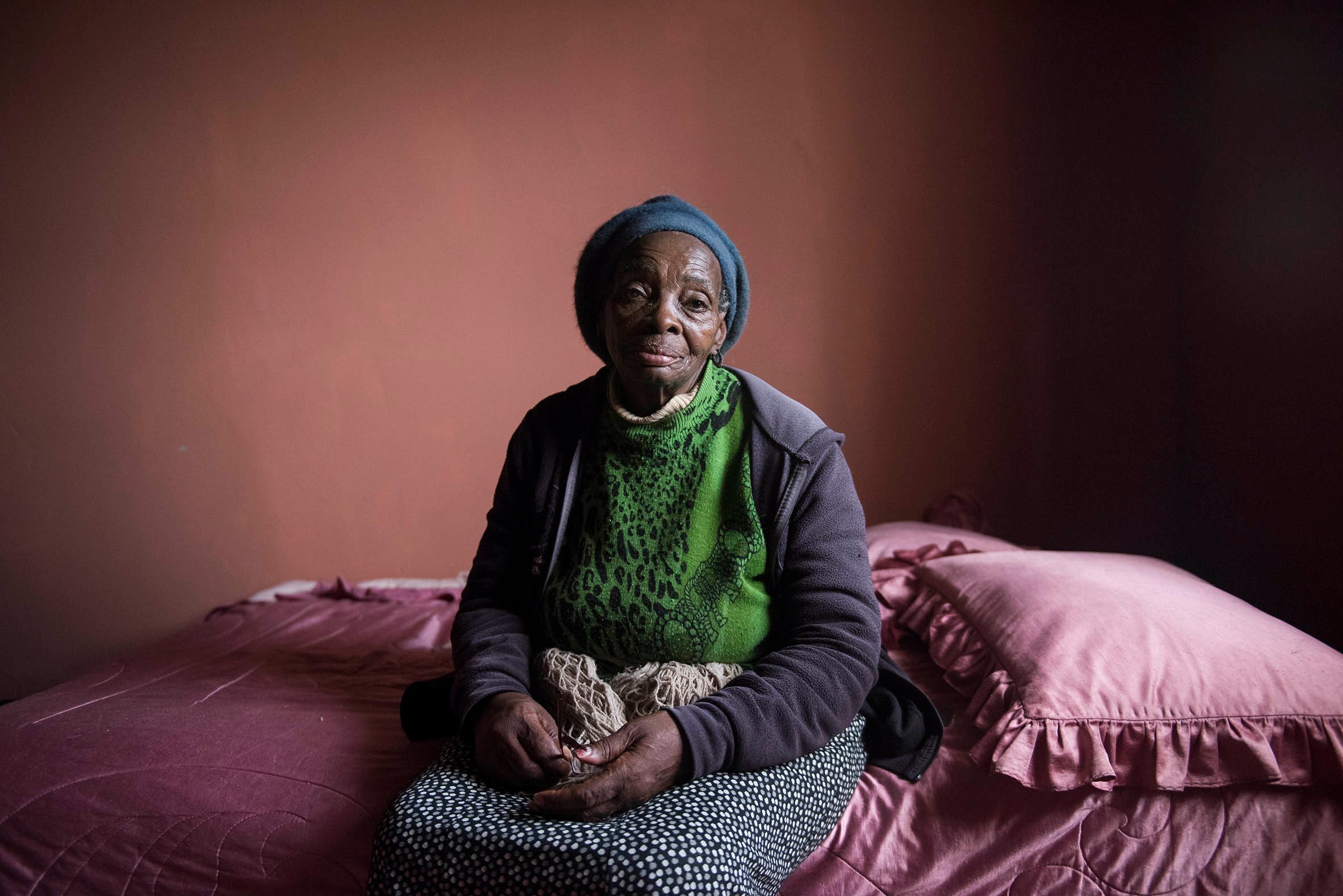
[Nongazi Madikizela had not anticipated the death of her cousin. (Madelene Cronje)]
The emotional and sickly 74-year-old at first refused to talk about “Sisi Winnie” and when she finally did, all she could say was: “God takes those who are useful and leave those who are not behind. For instance, he refuses to take me because I am no use to him.
“Sisi Winnie was a good person. I don’t know who has taken after her between her two daughters Zindzi and Zenani but I hope one of them has. I’m hurt by her death,” she said, holding back tears.
Other family members, such as Nonkosi Madikizela — who is married to one of Madikizela-Mandela’s relatives — will remember her for her encouraging words. “Sisi was open and a very nice person. She used to tell us that we must not sit down, we must fight the ANC so that we get services. She wanted us to be strong just like her. Sisi did not want a weak person.
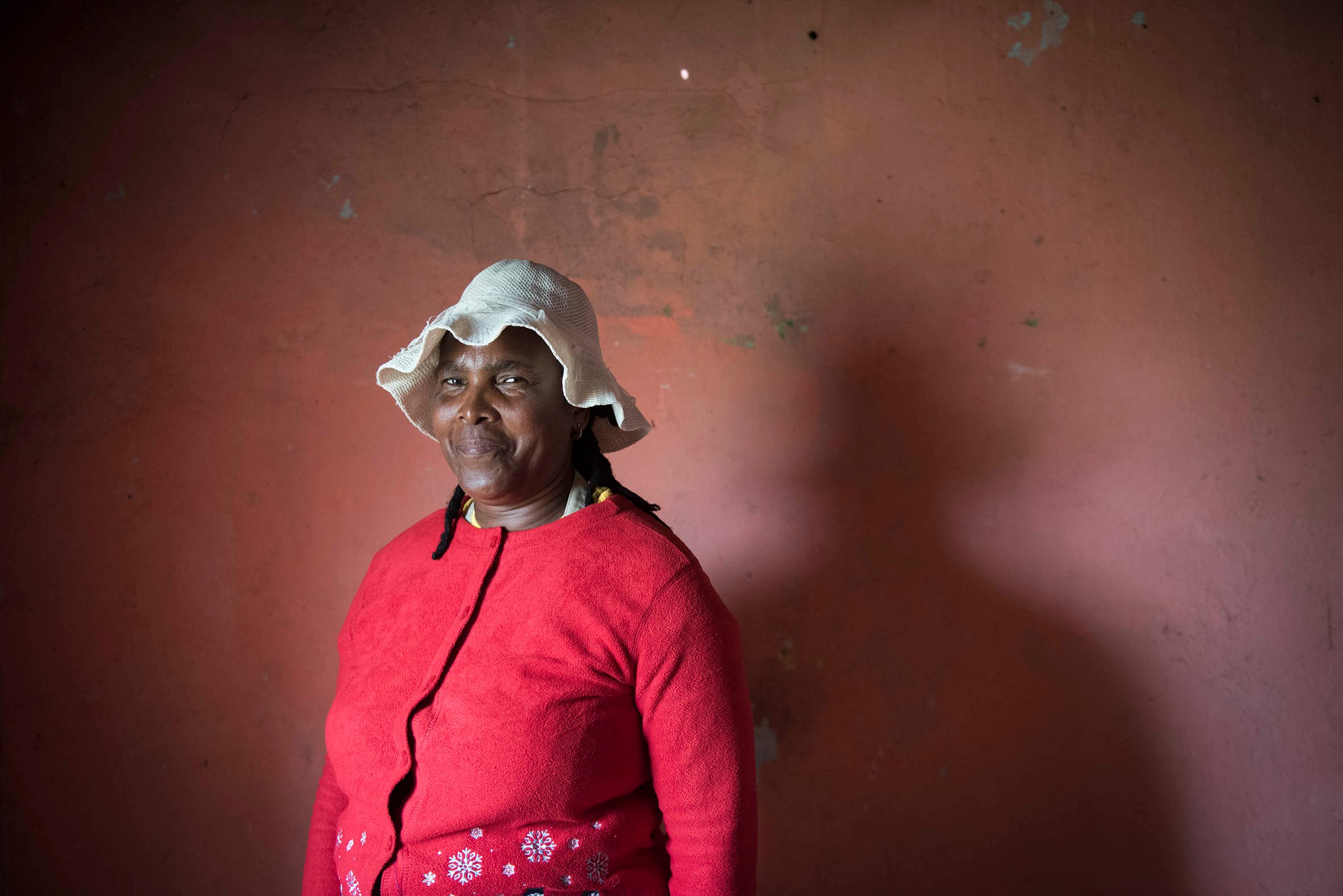
[Nonkosi Madikizela recalls that Sisana’s visits were ‘fun’ and that she returned to Jo’burg with food from the garden. (Madelene Cronje)]
“We always looked forward to her visits because we knew we would have fun having her around. Even when we are busy around the house, she would say, ‘Hayi khanibuyeni sincokole, niyayazi andihlali nani’ [Come, let’s chat. You know I don’t spend a lot of time with you]’,” she said.
She also spoke of how Madikizela-Mandela would ask them to pick imifuno, pumpkin and maize when she was going back to Johannesburg.
“She wanted to go back with umphako just like everyone when they visit home,” said Nonkosi Madikizela.
She also marvelled at Madikizela-Mandela’s elegance and effortless beauty, and even that her bedroom suite was “pure white” from the bedding to the wardrobe. “Ibintle, izithanda intombi ka Ngutyana. Yoh! Ebemhle usisi. [The Ngutyana daughter was beautiful. Oh! our sister was beautiful]”
She said Madikizela-Mandela’s death was a blow for the family and it came unexpectedly.
“We are hurt for losing Sisi. It was painful hearing that Sisi has passed away. We were not expecting it even though we knew that she was sick.
“We will miss her kindness and fearless nature and also that she elevated the Madikizela name. We are what we are today because of her,” she said.
But Madikizela-Mandela was not only kind and helpful to her family, she also opened her heart to the people in her village — true to her calling as a social worker.
Zwelenkosi Dlikithela, who sits on the chief’s council, spoke of how the community of Mbongweni would not have had electricity had it not been for Madikizela-Mandela.
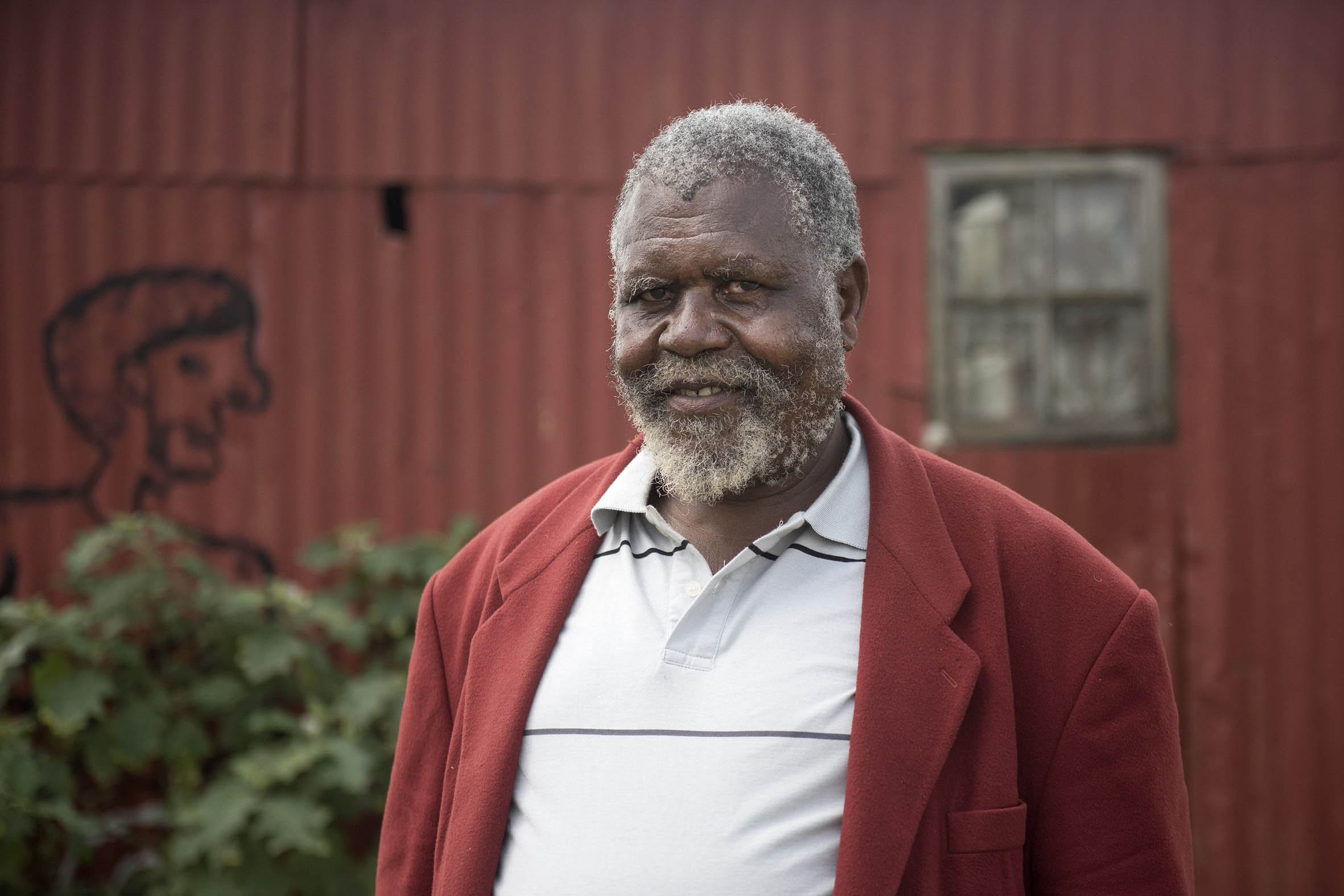
[Zwelenkosi Dlikitela, who sits on the chief’s council, remembers with gratitude that Winnie Madikizela-Mandela ensured that the village of her birth got electricity. (Madelene Cronjé)]
“She promised that we would get electricity and we got it. She fought for us to get it and for that we will forever be grateful to her. It is unfortunate that she has left us before she could fulfill some of the promises she had made to us, such as tarring the road,” said Dlikithela.
Mbongweni, which is about two hours from Bizana, is just like any other village in South Africa. There are few basic services and the gravel road to Madikizela-Mandela’s home requires careful navigation.
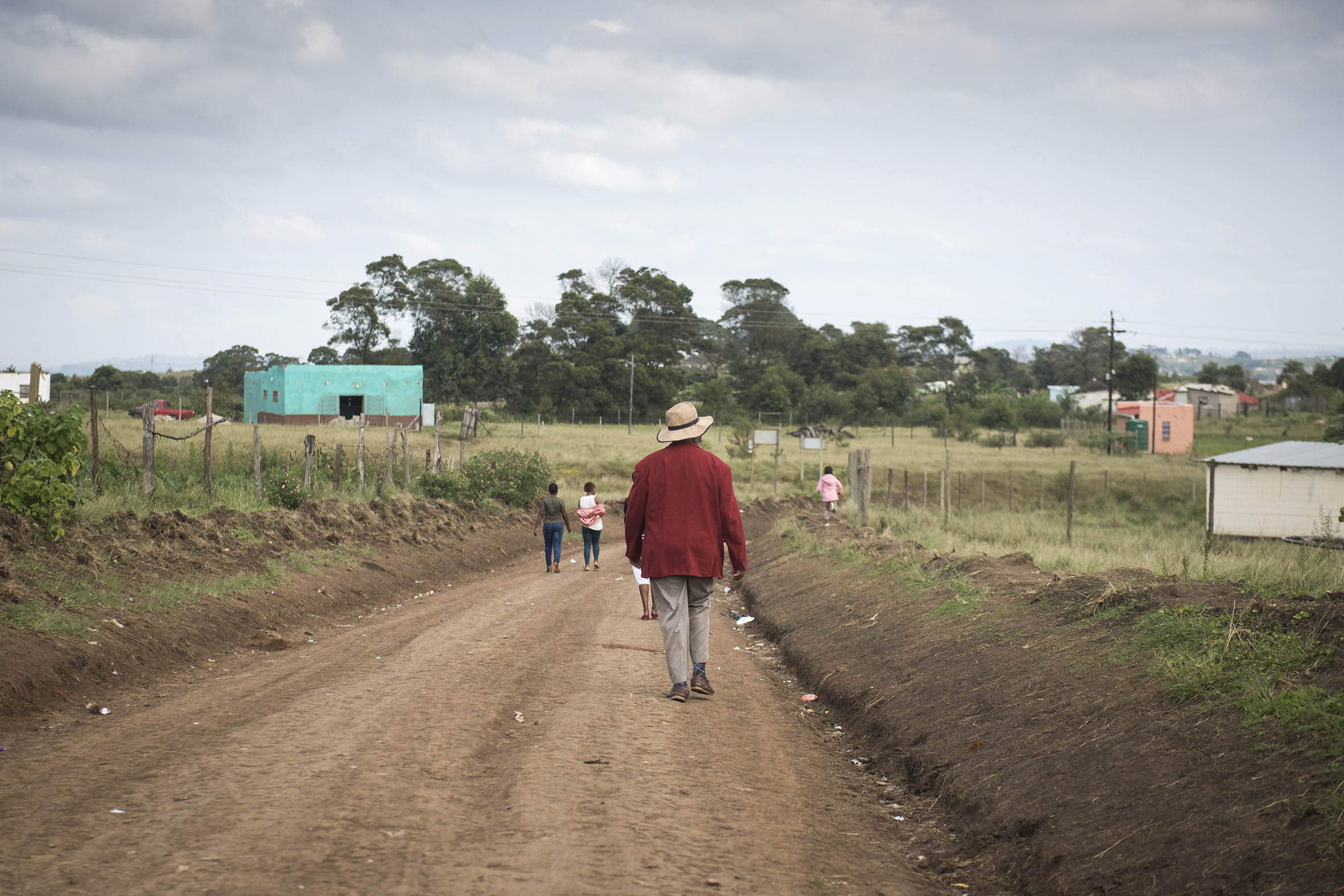
[Mbongweni villagers regret that Winnie Madikizela-Mandela died before the roads could be tarred. (Madelene Cronje)]
Dlikithela said the Mbongweni community had placed its trust in Madikizela-Mandela to bring change to the village.
“She was one of us who was close to power and we were counting on her to register our concerns to those in authority, but sadly she has left us before we could get everything we want,” he said.
He also reminisced about a time Madikizela-Mandela came to the village with a truck and gave food parcels to the residents. He said that each person received groceries worth R900.
“She had a good heart. We are saddened by her death,” he said.
In Bizana, there’s little to show that one of the world’s most celebrated icons is a daughter of the town. One street in the underdeveloped, dirty town is named Winnie Madikizela-Mandela.
Madikizela-Mandela, who will receive a state funeral, will be laid to rest on Saturday at the Fourways cemetery, and not in the garden next to her siblings and parents in Mbongweni.
Ivy Madikizela said the family was yet to meet and discuss plans to travel to Gauteng for the funeral.
When Winnie was at school
Winnie Nomzamo Madikizela-Mandela was good in isiXhosa grammar and equally brilliant in history and geography in standard eight (grade 10), according to her school records from Shawbury Native High School in Bencuthi village in Qumbu, Eastern Cape.
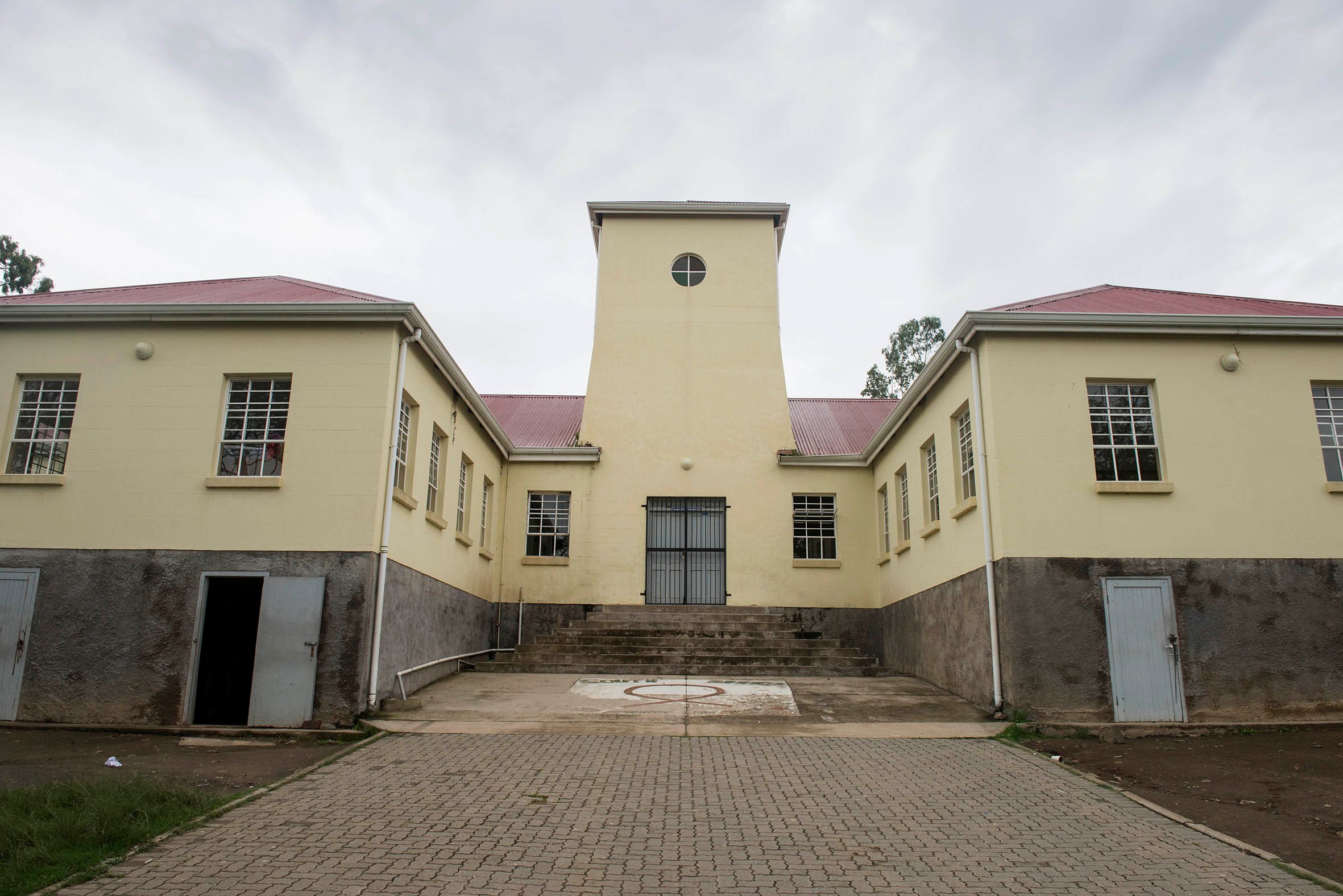
[Shawbury Secondary School in Bencuthi, Qumbu where Winnie Mandela went to high school. (Madelene Cronje)]
The records, which the Mail & Guardian saw when it visited the school this week, are neatly handwritten in blue ink on A3 paper. The school marks of the teenager “Madikizela, Winnie” fall between those of Lugongolo, Richard and Magadla, Lennox.
The young Winnie left her hometown of Bizana to finish off high school in Qumbu. She spent three years at the school, from 1950 until she matriculated in 1952.
The huge yellow building with a red roof towers over the village and is nothing like any other rural school in the Eastern Cape. The building could easily pass as a former Model C school in an urban area.
The school was founded by Methodist Church missionaries in 1877. The building in which she studied was built in 1938 and is still standing, but it has gone through numerous renovations.
The first hostel, known as Noah’s Ark, is also still standing. It was the teenage Winnie’s home during her years in Qumbu.
Nolitha Dyido, a teacher at the school, said that her mother had attended school with Winnie in the 1950s.
Dyido said that when her mother saw Madikizela-Mandela on TV she would to tell stories about her of when they were pupils.
“She used to say Mam’Winnie was such a beautiful lady, liked smiling and was talkative and very neat.
“And in the hostel she used to bring people together and did not want anyone to feel like they did not belong because they were not [from] around the area. She says she was a unifier,” said Dyido.
The principal, Nontobeko Mavumengwana, said she felt privileged to be leading a school where great people once walked the corridors.
Years later, the school still attracts pupils from towns as far as East London, Bizana, Kokstad and Lusikisiki because of its rich culture.
“I know nothing about the times Mam’Winnie spent at the school but she was our mother and we are feeling the pain of losing her as a school, because nothing is said about the school without people mentioning that she was a pupil here. It is an honour to have had someone like her schooling here,” Mavumengwana said.
Pupils also said that they were attracted to the school because people like Madikizela-Mandela had attended it and were saddened that one of their own had passed on.